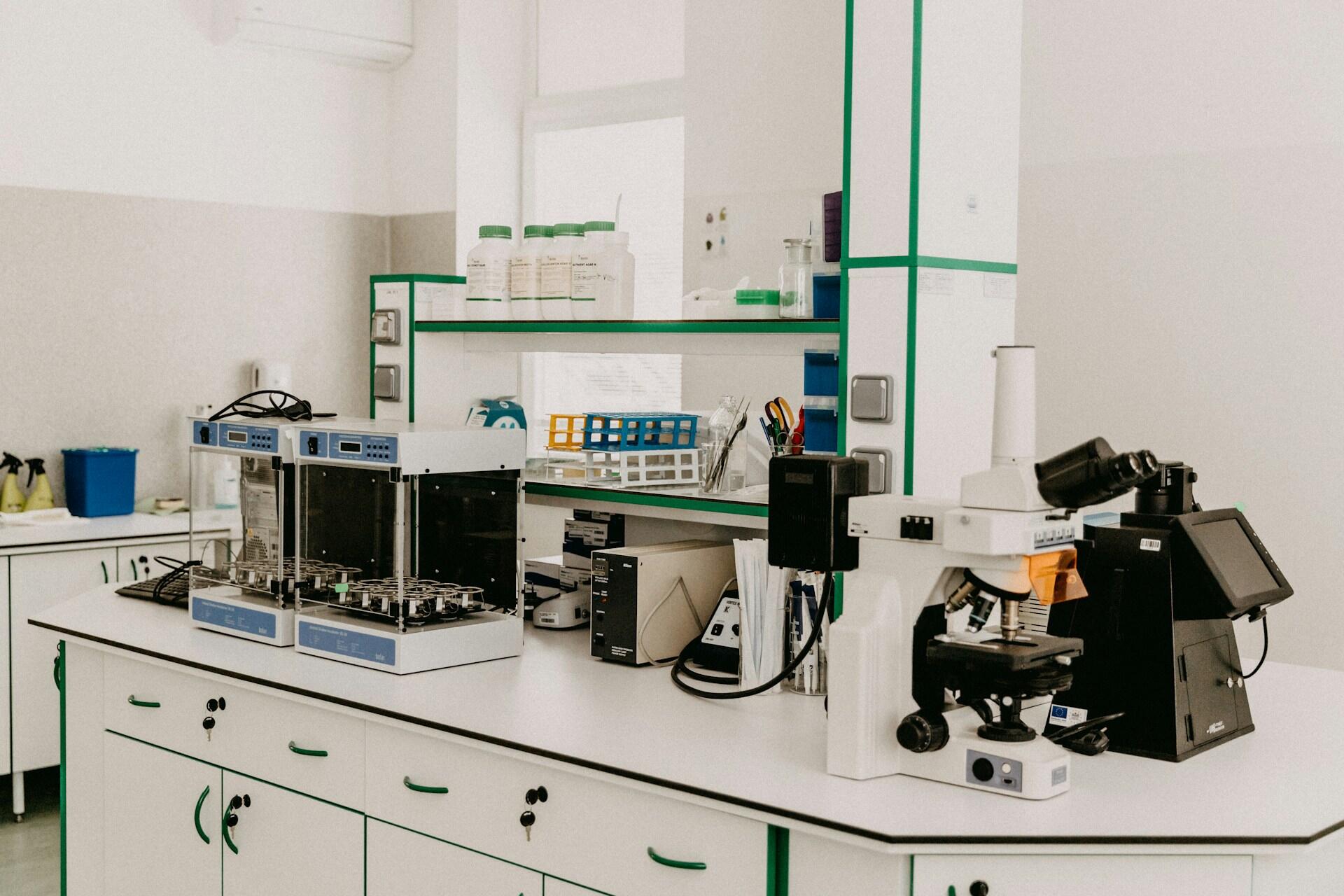Do you know how to choose a good chemistry tuition teacher? What qualities should they possess? What makes them a good chemistry tutor?
Everyone has their own answers to these questions. Some prefer a fun teacher who uses visual aids, others want a serious tutor with deep knowledge of chemistry, while some look for teachers who love demonstrating experiments. Basically, everyone has their own preferences when it comes to what makes a chemistry teacher a good one.
But before that, let’s find out why choosing a good chemistry teacher is important.
As Albert Einstein once said,
“It is the supreme art of the teacher to awaken joy in creative expression and knowledge.”
The right chemistry tuition teacher can make even the most complex formulas feel like an exciting topic to learn. That’s why you’re here today. In this guide, we’ll walk you through everything you should know before choosing your chemistry tutor in Malaysia.
By the end of this article, you’ll know exactly what to look for in a teacher and feel confident about your choice.
Without further ado, let’s get into it.


How to Choose a Good Chemistry Tuition Teacher: Factors to Consider
Finding the right chemistry tutor can be tricky, especially with so many chemistry tutors in Malaysia offering both online and in-person tutoring. Whether you’re studying at SPM, IGCSE, A-Level, or even university level, the right tutor can make a world of difference in how well you understand the subject.
Here’s what to look out for before deciding:
i. Qualifications
Check the tutor’s educational background carefully. Ideally, a qualified science teacher or someone with a degree or a Master’s in chemistry, physics, or education is best. If you prefer tutors from specific universities, such as private or local Malaysian universities, list that as part of your criteria checklist.
On platforms like Superprof, you’ll find tutors who are university students majoring in chemistry or education offering SPM, GCSE chemistry level, A-level chemistry, or matriculation-level chemistry tuition. Always ensure the chemistry tutor clearly lists their academic background and any teaching certifications.
ii. Experience
A tutor’s qualifications may not always reflect their teaching experience. Some may have studied a different field, like accounting or business, but teach chemistry and physics because of their passion.
Look for tutors with a proven record of teaching students at your level (SPM, A-level, IGCSE or university). Experienced chemistry tutors often mention hours taught and subjects offered (such as biology, chemistry, and physics) in their profiles. Additionally, check if they have experience teaching in different settings, such as home tuition, tuition centres, international schools, public or private high schools.
iii. Language and nationality
Consider your comfort with language. Do you prefer Malaysian tutors who can teach in a mix of Malay and English, or Mandarin and English? Under Malaysia's Dual Language Program (DLP), schools can choose to teach subjects like chemistry in Malay or English. So, before choosing a tutor, make sure you check this with them. Also, if you are choosing a foreigner, check if they are familiar with the Malaysian National Curriculum (KSSM) and can adapt their chemistry teaching methods accordingly.
iv. Syllabus familiarity
This is non-negotiable. A good chemistry tutor should be familiar with your exact syllabus – whether it’s SPM, IGCSE, A-Level, or university-level chemistry. For example, a tutor who has experience teaching overseas or studied overseas might not automatically know SPM Chemistry, so make sure they can tailor lessons to your curriculum.
v. Teaching style
Every student learns differently. A great chemistry tutor adjusts their teaching style based on your learning preferences. Discuss whether you want lessons to focus on exam preparation, problem-solving strategies, simplifying difficult concepts, or hands-on demonstrations for complex topics like molecular structure or chemical reactions.
vi. Student feedback
Always read verified reviews and ratings from other students that can help you decide if they’re a good match. This gives insight into the tutor’s teaching style, punctuality, and how effective they are at explaining complex chemistry topics.
vii. Availability
Decide whether you prefer online chemistry tutors or face-to-face classes. Discuss lesson frequency, preferred hours (weekends or after school), and cancellation policies before committing.
viii. Communication and Connection
Before booking lessons, speak directly with the tutor. This helps you gauge their communication style and see if you’re comfortable with them, personality-wise. A good chemistry tutor not only explains complex concepts clearly but also motivates you to keep learning and improving your confidence in the subject.
Wondering why you should study chemistry? If you’ve never really understood how it can help you, let us help you with that.

What to Ask a Potential Tutor?
If you’re a student or parent wondering what to ask when speaking to a potential tutor – don’t worry, we gotchu! If the tutor doesn’t provide a document or PDF that outlines everything (such as rates, class structure, or cancellation policies), it’s always best to ask these questions directly.
Here are some useful questions to ensure your needs are clearly communicated and aligned with your tutor:
- What is your experience as a chemistry teacher?
- What is your hourly rate?
- Do you have experience with the specific syllabus I need (e.g., SPM, A-Level, IGCSE)?
- Do you offer online lessons, and if so, what platform do you use?
- Can you provide replacement classes if a lesson is missed?
- How do you handle a slow learner who needs extra support?
- I prefer slow-paced lessons with plenty of examples — is that something you can accommodate?
- Could you teach in Malay/English (or both)?
- What is your teaching methodology? (e.g., Do you lecture, do group work, use interactive visuals, relate concepts to daily life?)
- How do you make chemistry lessons interesting or easier to understand?
- Do you provide notes, past-year questions, or practice materials?
- How much do you charge per hour or session?
- What is your approach to helping students prepare for exams?
- How often do you provide progress updates or feedback to parents/students?
- How do you handle students who are struggling with specific concepts?
- What’s your cancellation or rescheduling policy?
- How do you assess whether I’ve understood a topic before moving on?
You can always include your own questions if you have specific concerns or learning goals. For instance, you might ask what pursuing a degree in chemistry is like for students in Malaysia and get valuable insights from your tutor. The key is to ask clearly before committing to ensure both you and your tutor are on the same page.

How Much Does Chemistry Tuition Cost in Malaysia?
We’ve looked into the factors to consider when looking for a tutor; now, let’s take a look at the fees. Tuition costs in Malaysia vary depending on the level, location, mode of learning, and the tutor’s experience.
Here’s an estimated guide:
| Level | Estimated rate (per hour) |
|---|---|
| SPM / IGCSE | RM 50 - RM 100 |
| A-Level / STPM / Foundation | RM 100 - RM 180 |
| University Chemistry | RM 150 - RM 250 |
Online vs In-Person:
Online chemistry classes are generally more affordable, ranging from RM 40 – RM 80 per hour, depending on the tutor’s qualifications.
In-person classes, on the other hand, typically cost between RM 70 – RM 150 per hour, with Kuala Lumpur and Selangor being on the higher end due to demand and cost of living.
Specialised Subjects:
For specialised areas like organic chemistry, biochemistry, or A-Level/degree-level chemistry, fees tend to be higher — usually between RM 150 and RM 250 per hour.
Note: These figures are general estimates based on market rates across Malaysia and may vary depending on the tutor, class structure, location, and additional materials provided.
Are you keen to learn more? We’ve written a detailed guide that provides rough estimates of tutor costs in Malaysia – check it out if you haven’t already.


How to Learn Chemistry Effectively
Learning chemistry is not just about memorising formulas and the periodic table – it requires logical reasoning, conceptual understanding, and problem-solving skills to apply knowledge to new situations. While memorisation is useful for certain facts, true success in chemistry comes from developing a deeper understanding of how everything connects.
Here’s how you can study chemistry more effectively, whether you’re learning independently or with a tutor:
- Focus on understanding, not memorising.
Understand the “why” behind each chemical reaction and principle, not just memorising facts and formulas. - Relate to real-life examples
Linking what you learn in class to real-world examples makes the subject more interesting and easier to remember. - Practise consistently
Work through SPM or IGCSE past papers regularly. Do revision regularly before and after class. - Visual learning
Make use of diagrams, flashcards, molecular models, and formula sheets to visualise complex concepts. You can also watch educational videos online to see how chemical reactions work in real time. - Get extra help
Hire a private tutor if you’re struggling to grasp certain topics.
Discover effective ways to study chemistry and boost your understanding.

Understanding Organic and Inorganic Chemistry
Have you heard about organic and inorganic chemistry? These two are one of the main branches of chemistry. Let’s find out what they are.
In simple words:
- Organic Chemistry: A study that focuses on carbon-containing compounds such as plastics, medicines, and even the food we eat.
- Inorganic Chemistry: A study that focuses on compounds such as metals, salts, gases and minerals.
Organic chemistry plays an important role for food scientists, environmental scientists, forensic experts, and chemists, while inorganic chemistry is essential for chemical engineers, laboratory technicians, and petroleum engineers.
To make it super simple, organic chemistry is about things made of carbon, while inorganic chemistry deals with things like rocks, metals, and minerals that don’t have carbon.
Chemistry doesn’t need to be difficult. Find a tutor who can assess your current level and customise your lessons and learning style, so you can truly understand the subject and see how it applies to the world around you.
There are plenty of career opportunities in the field of chemistry if you decide to pursue further studies in this area. Check out our guide to learn what they are.
Where to Find Good Chemistry Tutors in Malaysia
There are several ways to find good chemistry tutors in Malaysia:
- Tuition centres: There are many tuition centres across Malaysia that offer science subjects such as chemistry, physics, and biology.
- Online platforms: Many sites connect students with online chemistry tutors.
- Recommendations: Ask teachers, friends, or classmates. Word of mouth is often the best way to find an experienced chemistry tutor.
- Social media: Facebook groups and community pages frequently list tutors offering both online and home tuition.
Looking for a chemistry tutor in Malaysia? Here’s how to find the best one for you.

Find Your Tutor on Superprof
Our one-stop online platform has over 185,443 verified chemistry tutors across Malaysia, ready to help you succeed. You can also find tutors for almost every subject – from physics and biology to general science.
The best part? You don’t have to leave your house. All you need to do is head over to our website, create an account if you don’t for free, insert the subject and your location, and start browsing our tutors’ profiles. When you’ve found the right match, don’t just book yet; drop them a message to ask your questions. Our tutors typically reply within hours (check our average reply time).
Use the questions we shared in this article to help you start a conversation. If in doubt, don’t worry – most of our tutors offer the first class free. Attend the free lesson before you decide to commit to the long term.
Whether you’re an SPM, STPM, IGCSE, or a university student, you will find a tutor who fits your budget, needs and goals. Talking about the budget, our classes are priced at an average of RM 57/hour.
Superprof proudly connects students to their ideal tutors all around Malaysia, so you don’t have to worry if your tutor lives far away. Learning can still happen online – anywhere, and anytime.
What are you waiting for? Hurry, go to our website and start your chemistry lessons with us!
Summarise with AI:
















